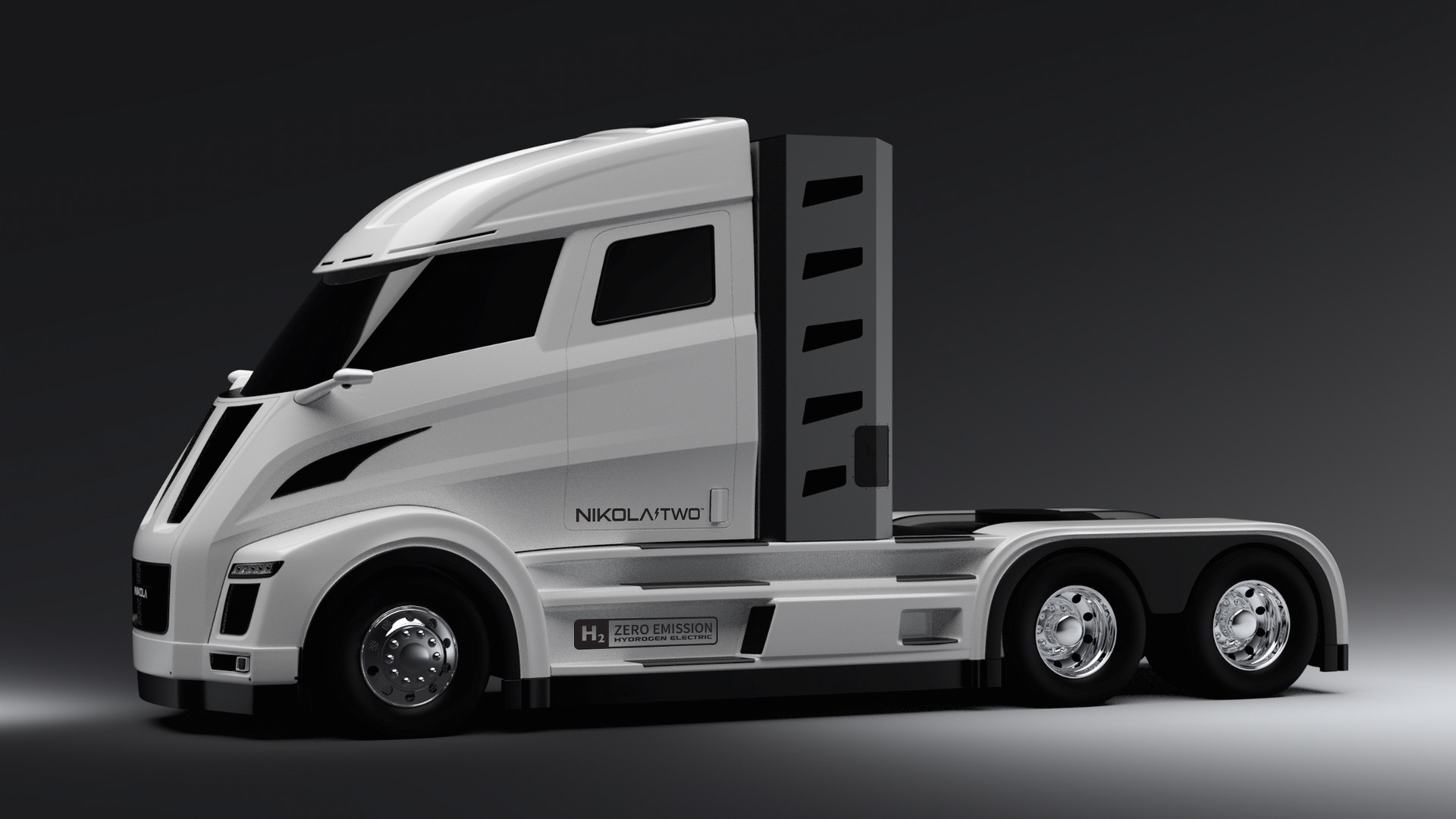

With all eyes on Tesla’s battery-electric semi truck, another company named after the famous inventor is plugging away on its own zero-emission semi truck. Nikola Motor Co. unveiled its Nikola One hydrogen fuel-cell semi truck last year, followed by another version called the Nikola Two. Now the company has announced a partnership with Bosch that will focus on powertrain development for the vehicle.
The startup will employ Bosch’s eAxle technology for the trucks’ electric powertrains. The eAxle setup combines an electric motor/generator and inverter into one unit, which Bosch claims saves on costs and allows for more compact packaging. Bosch and Nikola also said they will create a “custom-designed fuel cell system” to provide electricity for the motors.
Nikola previously said the trucks will sport six electric motors, producing a combined 1,000 horsepower and 2,000 pound-feet of torque. Range is quoted at 800 to 1,200 miles. While Nikola boasts that the trucks can be refueled with hydrogen instead of plugging in, they will feature 320-kilowatt-hour battery packs as well. Nikola said in April that it plans to begin road-testing prototypes before the end of next year, so the finished product likely won’t be too far off.
The cost of batteries and the long charging times associated with them have held electric commercial trucks back. The ability of Nikola’s hydrogen trucks to refuel quickly could make them more attractive to operators than battery-powered big rigs; however, Nikola must complete a promised network of hydrogen fueling stations before the trucks could reach their full potential.
Despite performance and infrastructure issues, commercial trucks could be the next frontier for electrification. Cummins recently unveiled a prototype electric truck, and Tesla will unveil its truck next month. Likewise, Daimler just delivered its first Fuso eCanter, a lighter-duty box truck. Considering that commercial trucks cover more mileage than passenger cars every year, these rigs could be a very effective way to reduce overall greenhouse gas emissions.